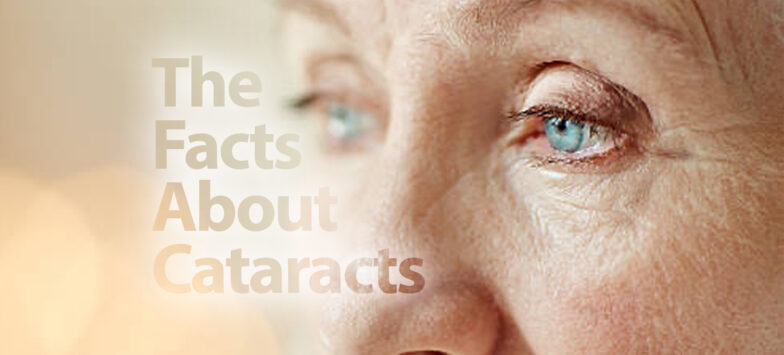
Let’s Be Clear About Cataracts
Most of us know someone who has, or had surgery to correct, the common eye disease known as cataract. The Centers for Disease Control and Prevention (CDC) states that cataract is the leading cause of vision loss in the United States, and the leading cause of blindness worldwide. That’s why the Prevent Blindness organization has declared June as Cataract Awareness Month. So at Atlantic Eye we thought this would be a good time to discuss the symptoms, causes and risks of this scary but treatable condition that affects many of us as we age.
What is Cataract?
A cataract is when the lens of the eye, located behind the pupil and the colored iris, becomes cloudy, blocking or restricting the passage of light into the eye. The lens is normally transparent, but when it gets clouded this blocks the light coming into the retina. The brain then receives images that are out of focus instead of clear.
Cataract Symptoms
If you notice any of these vision changes, notify your Atlantic Eye ophthalmologist:
- Blurry vision
- Seeing double or a ghosted image out of the eye with cataract
- Being extra sensitive to light (especially with oncoming headlights at night)
- Trouble seeing well at night, or needing more light when you read
- Seeing bright colors as faded or yellowed
- Halos appearing around lights
Possible Causes
- Age
- Intense heat or long-term exposure to UV rays from the sun
- Certain diseases, such as diabetes
- Inflammation in the eye
- Hereditary influences
- Events before birth, such as German measles in the mother
- Long-term steroid use
- Eye injuries
- Eye diseases
- Smoking
Reducing Risk
You may be able to slow the development of cataracts by protecting your eyes from sunlight. Wear sunglasses that screen out the sun’s ultraviolet (UV) light rays. (Reminder: our Designer Sunglass Trunk Show is coming up June 21st , see https://www.eventbrite.com/e/designer-sunglass-trunk-show-tickets-633448430307)
It may help to have a clear, anti-UV coating added to regular glasses. It’s also very important to stop smoking, since smoking is a key risk factor for cataracts.
Treatment
During a comprehensive eye exam, your Atlantic Eye ophthalmologist will detect any level of cataract and monitor the condition as it progresses. Cataracts can be removed only with surgery. You should consider surgery when cataracts keep you from doing things you want or need to do.
During cataract surgery, your eye surgeon will remove your eye’s cloudy natural lens and replace it with a clear artificial lens. This new lens is called an intraocular lens (or IOL). When you and your Atlantic Eye ophthalmologist decide you will benefit from cataract surgery, you’ll be advised about which type of IOL will work best for you.
